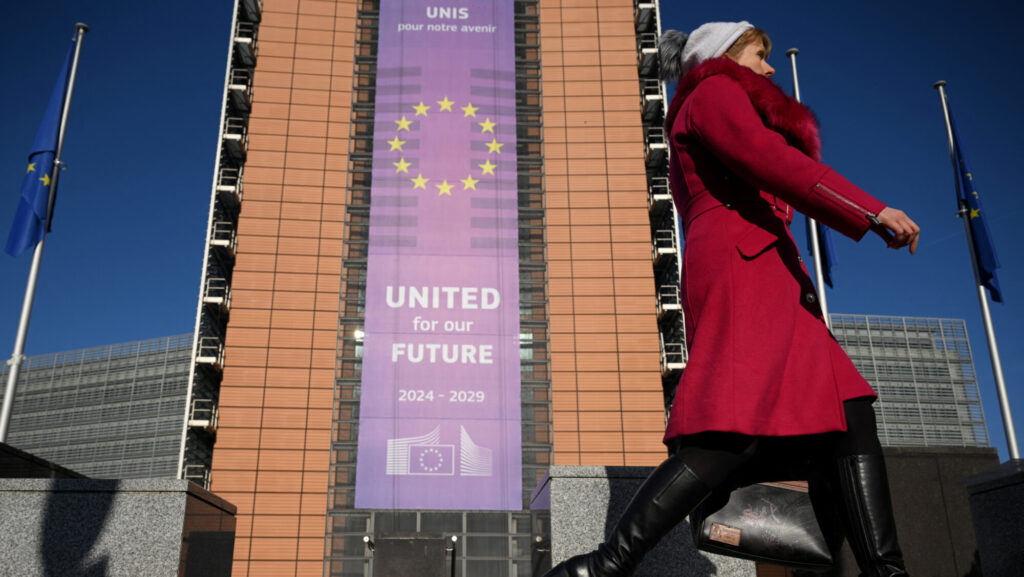
The U.S. president is tackling an issue the nation has been kicking down the road since the end of the gold standard in 1971: the gaping chasm of fiscal disaster and trade deficits.

The media will have to get used to it: the RN intends to go all the way to power without violence or a coup d’état.

Are the proposed revisions enough to finally close the door on illegal migrants?

Enjoying both his party’s and the nation’s support, France’s right-wing ‘Cyborg’ has two years to mature and fill Le Pen’s shoes.

The CDU/CSU Union is about to fail at the very thing they have always prided themselves on: political responsibility.

While it makes sense to take advantage of being Trump’s favourite Western country, this must be done with a keen eye on maintaining British sovereignty and British interests.

Greek Orthodox Christians in Turkey accounted for approximately 100,000 citizens in 1923. Today, they number around 1,200.

The judges should beware of not serving as a tool in the establishment forces’ endeavours to prevent a Marine Le Pen presidency.

There are ample opportunities to find savings in Europe’s bloated welfare states, making it entirely feasible to find the resources to bolster the military.

“The Great Reset” or fighting fire with fire by developing a counterproposal to the European Parliament’s reform plan, charting a different course from that envisioned by Brussels elites.

Israel might be politically divided but, our reporter finds, the country’s security remains a paramount national concern.

Trump targeting allies doesn’t excuse the EU’s imposing new tariffs that taxpayers will have to bear, rather than addressing European protectionism.

Unbeknown to our correspondents at the time, we captured a snapshot of the country on the very last day before war in Gaza resumed.

Wearing a tie and a suit does not wipe away HTS leader Sharaa’s past and present crimes—and the EU Commission should remember that.

While there is widespread support among Christians for a federalist state, many believe emigration is their only option for survival.

Due to the restructuring of the energy markets since the outbreak of the war in Ukraine in 2022, Norway now supplies 30% of Europe’s energy needs.

The country’s new constitution will mandate that the president be Muslim, suggesting that authorities may tacitly permit or support Islamist persecution of Christians.

Doubling down on sanctions that haven’t worked until now is unlikely to deliver different results in the future.

As Europe pins its hopes on Merz for stability, his shaky domestic alliances could turn his chancellorship into a political minefield.

Suppose the Brussels elite prolonged the war and no one came?

Despite being a majority-Christian nation, the Democratic Republic of Congo has become one of the most dangerous places in the world for Christians due to escalating jihadist violence.

Ukrainian territory is highly coveted for its immense natural resources that both the U.S. and Europe hope to get access to.

The CDU leader’s words ring hollow about the left being “over,” as his coalition with SPD makes it impossible to deliver on the promised reforms.

CHEGA’s recent motion of no confidence against the incumbent government exposes the rift between the legacy centre-right and the rising populist party.

The EU Commission, which previously criticised and punished the conservative PiS government, is now silent in the face of blatant law violations by Donald Tusk.

By dismissing the appliance sector’s strategic importance, the EU risks undermining its innovation, sustainability, and economic resilience goals.

Will Brussels be able to acknowledge its mistakes, or will it continue clinging to a narrative that no longer holds?

Brussels, trying to be the eminent student in the class, whatever the subject, stepped into quicksand and is now ready to sink.

The Paris AI Summit revealed the gap between the American Empire of Innovation and Brussels’ Reign of Regulation.

Ukraine is now willing to supply Washington with rare-earth minerals in hopes of continuing to receive American assistance.